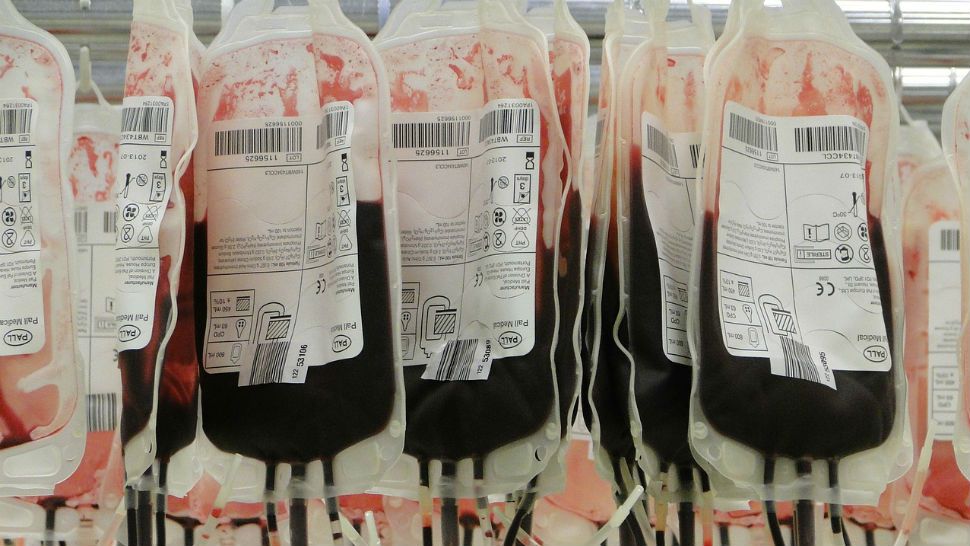DALLAS — While Texas continues to feel the effects of COVID-19 with new cases climbing every day, healthcare workers worry about an altogether different victim of the pandemic: the blood supply.
What You Need To Know
- Blood banks are in short supply because people are not donating blood during the pandemic
- Carter BloodCare began offering antibody testing on blood donations
- Antibody testing determines with relative accuracy whether the donor had been in contact with or had contracted COVID-19
As people continue to stay and work from home to minimize the risk of spreading the virus, this also means that people are not donating blood, whether it be in person at a donation center or not holding big blood drive events as schools, businesses and churches do throughout the year. According to the Dallas Morning News, the area’s blood supply dropped by almost 40 percent in May.
“We were in the most prolonged period of crisis,” said Linda Goelzer, director of public relations for Carter BloodCare, the biggest blood bank in North Texas. “We were barely getting by. Hospitals were making decisions based on how much blood was there.”
Starting June 22, Carter BloodCare began offering antibody testing on blood donations, which determined with relative accuracy whether the donor had been in contact with or had contracted coronavirus. The testing was both an incentive for people to come and donate blood and a way to thank donors. However, Goelzer said, the antibody testing is not a way of building a sustainable donor pool — if someone is donating only for the antibody testing, it’s not likely they will come back to donate again.
This still puts the blood supply in a tenuous situation.
“The blood we have right now, it’s a good supply,” Goelzer said, “but it’s not above and beyond what we want on a regular basis. If people are giving simply because they want antibody testing, they’re not going to give again.”
Goelzer said at the moment, Carter BloodCare is at a one to two day supply. Ideally, the supply should be at two or more.
Currently Carter is taking necessary precautions to limit contact between workers and donors by requiring social distancing and masks. If someone would like to donate, the best practice would be to schedule an appointment online at Carterbloodcare.org and fill out the questionnaire ahead of time to limit the amount of time spent in the donation center. They are also allowing people to stay in their car and calling them in to the center to limit exposure for everyone.
But, while donating blood is admirable, people still need to use common sense when deciding whether to donate. Regardless of the pandemic, Goelzer said, Carter BloodCare still requires people to feel well and healthy in order to donate.
“If you know you’ve had a fever, if you’v head any symptoms, you probably don’t want to give blood,” she said. “Not because the blood supply is in danger, but generally speaking, if you’re not feeling well we don’t know what it is.”



